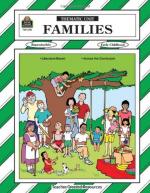|
This section contains 8,412 words (approx. 29 pages at 300 words per page) |

|
Social scientific notions of the disappearance or vestigialization of religion and family are deeply rooted in our theoretical conceptions of the social processes that created the modern world and that now are transforming that modernity into postindustrial, postmodern society. Theories of modernization envision social change as entailing the rationalization of all spheres of existence. In a statement characterizing the classic modernization approach, Moore (1963, p. 79) says, "A major feature of the modern world . . . is that the rational orientation is pervasive and a major basis for deliberate change in virtually every aspect of man's concerns." There is little room for the seemingly irrational and unscientific impulses of religion, primary emotions, and familial concerns.
With this approach, the secularization of religion is a given. Moore (1963, p. 80) states, "Even with regard to the role of religion in human affairs, the 'rational spirit' takes the form of secularization, the...
|
This section contains 8,412 words (approx. 29 pages at 300 words per page) |

|


